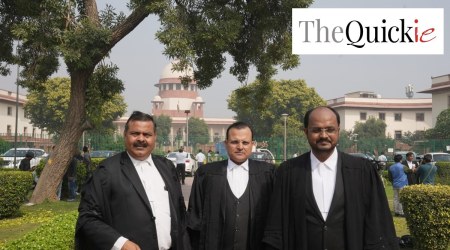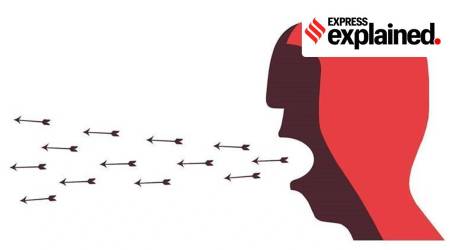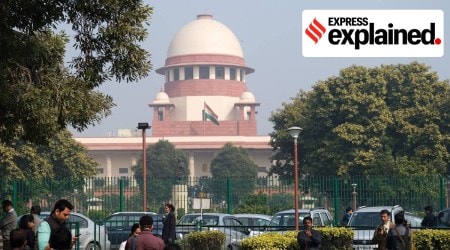EXPLAINED LAW NEWS - Page 31
Quotas for poor among ‘forward castes’ upheld: Here’s the case and what the SC has ruledSubscriber Only
The 103rd Amendment inserted Articles 15(6) and 16(6) in the Constitution to provide up to 10 per cent reservation to the economically weaker sections (EWS) among non-OBC and non-SC/ST sections of the population.
With EWS reservation up for Supreme Court review, a look at the case so farSubscriber Only
Calling the amendment “an attack on the constitutional vision of social justice” and “a fraud on the Constitution”, those petitioning against it contend that if upheld, it will be the end of equality of opportunity.
SC directions on hate speech: How courts have read IPC Sec 295A, other provisionsSubscriber Only
While India does not have a formal legal framework for dealing with hate speech, a set of provisions of the Indian Penal Code, loosely defining hate speech, are invoked. Take a look.
Why SC will examine the question of age of marriage of a Muslim womanSubscriber Only
Can the personal law of a religion override the provisions of the law to prevent child marriage? Courts have differed in the past, and the NCPCR has challenged a decision of the Punjab and Haryana HC.
Gyanvapi mosque committee moves Allahabad HC: What is the order they’ve challengedSubscriber Only
The Gyanvapi mosque side had argued that the civil suits to worship Maa Shringar Gauri and other deities within the mosque premises were barred under three specific laws. Here's what they argued, and what the Varanasi court ruled.
BEST OF EXPRESS
































